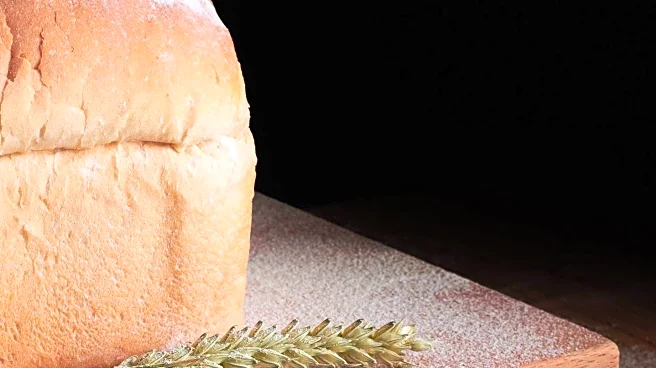What's Happening?
A study has assessed the health risks associated with potentially toxic elements (PTEs) in bread from Iranian markets using Monte Carlo simulation. The analysis of 248 bread samples revealed that concentrations of elements like iron, chromium, lead, aluminum,
cadmium, and mercury exceeded WHO/FAO safety limits. The study found that traditional baking methods and environmental factors contribute to these elevated levels. For instance, the use of cast-iron baking plates and proximity to industrial zones increase iron and lead contamination. The study emphasizes the need for health risk assessments to protect consumer health.
Why It's Important?
The findings underscore significant health risks associated with consuming bread contaminated with heavy metals, particularly for children who are more vulnerable to these elements. Long-term exposure to lead and chromium can lead to serious health issues, including developmental risks and increased cancer incidence. The study highlights the importance of monitoring and regulating PTEs in food products to safeguard public health, especially in regions with high industrial activity.
What's Next?
The study suggests targeted monitoring and further investigation in regions with high contamination levels. Efforts to reduce PTEs in bread and other food products are crucial to mitigate health risks. Regulatory bodies may need to enforce stricter safety standards and promote cleaner production practices to address these concerns.
Beyond the Headlines
The study raises ethical and environmental questions about industrial practices and their impact on food safety. It calls for a reevaluation of agricultural and manufacturing processes to prevent contamination and protect consumer health. The findings may prompt broader discussions on food safety regulations and environmental protection.
















